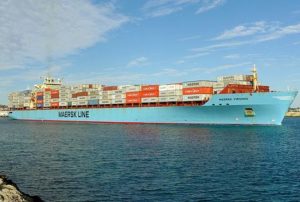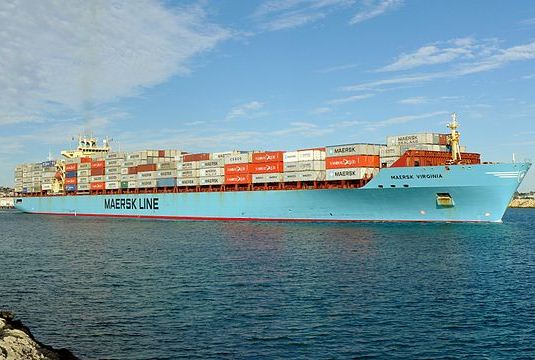 A.P. Moller-Maersk did not hit its earnings target for 2017 but said it improved both revenue and profit, the growth primarily driven by its container business Maersk Line.
A.P. Moller-Maersk did not hit its earnings target for 2017 but said it improved both revenue and profit, the growth primarily driven by its container business Maersk Line.
The Danish logistics and transport giant said underlying profit last year was US$356 million compared to a loss of $496 million in 2016.
“The past year was unusual for A.P. Moller-Maersk, characterized by a cyber-attack and operational challenges in a few hubs. We succeeded in growing the revenue by 13%, improving cash flow and increasing underlying profits from a low 2016 base. However, the financial result shows that significant improvements are still needed,” said Soren Skou, CEO of A.P. Moller-Maersk.
On the other hand, he expressed satisfaction with the progress the group made last year with its strategic business transformation involving integrating and automating its businesses.
“We have taken the first steps towards the integration of our container shipping, ports and logistics businesses and our digital transformation is taking shape. At the same time, we have found new owners for part of the energy-related business units,” said Skou.
Group revenue for 2017 amounted to $30.94 billion, up 13% from 2016. Profit before depreciation, amortization, and impairment losses (EBITDA) reached $3.5 billion, up 43% from 2016, while EBIT rose 162% to $641 million.
Highlights from 2017 include $14 billion worth of M&A transactions, including welcoming Hamburg Süd to the Maersk family, agreement to sell Maersk Oil, sale of Maersk Tankers and Mercosul—the Brazilian container line—as well as the sale of the remaining 19% stake in Dansk Supermarked Group.
Additionally, structural solutions for Maersk Drilling and Maersk Supply Service are expected before the end of 2018.
Maersk Line and Damco were severely impacted by a cyber-attack in the third quarter, A.P. Moller-Maersk said. “Maersk Line recovered quickly with strong volume growth and near all-time low unit costs toward the end of the year.”
“Stronger cooperation between Maersk Line and APM Terminals generated the first integration synergies of around USD 0.1bn despite negative impact from the cyber-attack and operational challenges in key hubs,” said the company.
Maersk Line, which carries about 19% of seaborne freight following the $4 billion acquisition of Hamburg Süd, boosted its underlying profit by $900 million in 2017 compared with the year earlier, missing its guidance of about $1 billion.
The acquisition of Hamburg Süd is an important part of the Maersk growth strategy, said Maersk. Together, the two carriers have around 19% global capacity market share, more than 4 million TEUs in container capacity, and an unmatched network of services. Cost synergies from the merger are expected to be between $350 million and $400 million by 2019.
Maersk said it also advanced the digital transformation of its core business, moving customer transactions online and digitizing the way assets are operated. “A series of digital initiatives were launched during the year to accelerate the transformation of the industry from legacy paper-based, to digital customer-centric processes and services, enabling new product offerings.”
For 2018, A.P. Moller-Maersk expects an underlying profit above 2017’s $356 million, and EBITDA in the range of $4.0 billion to $5.0 billion from $3.5 billion in 2017.
Photo: Bahnfrend





